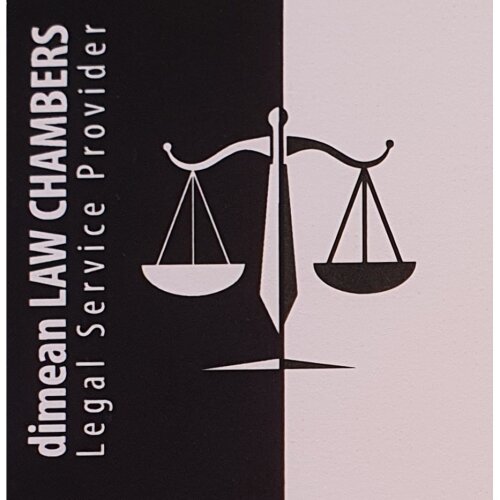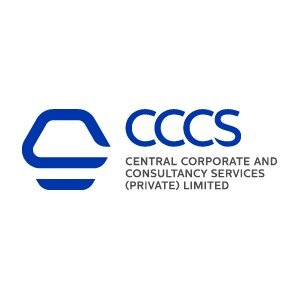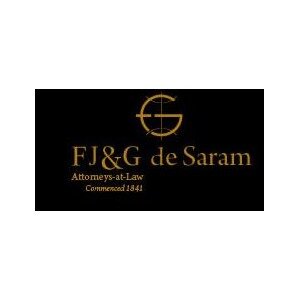Best Energy, Environment & ESG Lawyers in Colombo
Share your needs with us, get contacted by law firms.
Free. Takes 2 min.
List of the best lawyers in Colombo, Sri Lanka
About Energy, Environment & ESG Law in Colombo, Sri Lanka
Energy, Environment & ESG law in Colombo, Sri Lanka focuses on regulating and guiding how individuals, companies, and organizations operate in connection with energy production and use, environmental protection, and compliance with Environmental, Social, and Governance (ESG) standards. With increasing international scrutiny and community awareness, businesses in Colombo need to comply with sectoral laws on energy usage, natural resource management, emissions, and corporate responsibility. Sri Lanka’s capital, Colombo, serves as the country’s economic hub, where progressive policies relating to renewable energy, sustainable development, pollution control, and ESG frameworks are especially relevant for local and international business owners, investors, developers, and community stakeholders.
Why You May Need a Lawyer
Dealing with energy, environmental, or ESG-related matters can involve complex legal frameworks and strict government regulation. The most common situations in which individuals or organizations might need to seek legal advice in Colombo include:
- Obtaining permits or licenses for energy projects, such as solar, wind, or hydroelectric installations
- Ensuring compliance with environmental standards in manufacturing, construction, or industrial operations
- Responding to government or community complaints regarding pollution, emissions, or waste disposal
- Assessing and managing environmental impact assessments (EIA) for new projects
- Structuring ESG policies and reporting to meet local and international stakeholder expectations
- Handling disputes or litigation related to environmental damage or non-compliance
- Negotiating with government authorities or community groups over land use or resource rights
- Advising on climate change risk and sustainability strategies for business
- Navigating the legal processes for renewable energy initiatives or waste-to-energy projects
Specialized legal help ensures that you or your business can operate smoothly, avoid penalties, and demonstrate strong governance in line with both Sri Lankan and international practices.
Local Laws Overview
Energy, Environment & ESG regulations in Colombo are shaped by both national laws and local authority guidelines. Some key aspects include:
- The National Environmental Act, which creates the framework for environmental protection and standards, including pollution controls and licensing requirements
- The Sri Lanka Electricity Act and related regulations, dictating licensing and operational standards for electricity generation and distribution (including renewables)
- Environmental Impact Assessment (EIA) regulations for certain categories of large projects, especially those with a potential environmental footprint
- Climate change policy responsibilities, including mechanisms to reduce greenhouse gas emissions
- Waste management legislation, guiding the proper handling, storage, transportation, and disposal of industrial and hazardous waste
- Occupational health and safety rules, particularly for industries involving chemicals, energy production, or waste processing
- Guidelines and codes introduced under Ministries or agencies aimed at ESG practices, reporting, and transparency
Failure to comply with these laws can result in steep penalties, including fines, project shutdowns, and legal action. Adhering to these regulations is also important for securing international financing and maintaining positive community relations.
Frequently Asked Questions
What types of projects in Colombo require an Environmental Impact Assessment (EIA)?
Any large scale project that could have a significant environmental effect typically requires an EIA, including construction projects, energy generation facilities, waste management plants, and certain industrial developments. Regulations specify which activities require this assessment.
Do I need a special permit to set up a renewable energy facility in Colombo?
Yes, renewable energy projects such as solar parks or wind farms must obtain permits and licenses from relevant regulatory bodies, including the Sri Lanka Sustainable Energy Authority and the Public Utilities Commission.
What are the key ESG requirements for companies operating in Colombo?
Companies are expected to follow good governance, maintain transparent reporting on environmental and social responsibility, adhere to anti-corruption standards, and respect labor and human rights. Some sectors may have specific reporting mandates or industry codes.
What penalties can result from violating environmental laws in Colombo?
Penalties may include fines, the suspension or cancellation of permits, compensation for environmental damage, forced closure of facilities, and even criminal charges in severe cases.
How can I ensure my business is compliant with local environmental regulations?
Regularly review operational processes, obtain appropriate licenses, conduct internal audits, seek professional legal advice, and stay updated on changes to environmental rules and standards.
What should I do if my company receives a complaint or notice about pollution?
Promptly investigate the issue, document findings, engage with an environmental lawyer, and communicate with authorities to address the complaint. Timely and transparent response can help mitigate penalties.
Are there incentives for businesses investing in sustainable or green projects?
Sri Lankan authorities often provide incentives for renewable energy, energy efficiency, and eco-friendly projects, such as tax benefits, grants, and priority permits, especially for projects contributing to national development goals.
What are my obligations for waste management as a business operator?
Businesses must properly handle, store, transport, and dispose of waste according to municipal and national laws. Documentation and, in many cases, waste management plans are required.
How can a lawyer help with ESG reporting and compliance?
Lawyers can advise on regulatory requirements, review internal policies, draft compliance documents, assist with disclosure processes, and train staff on ESG best practices.
Where can I find legal updates or guidance on recent changes in environmental or ESG laws?
Government websites, law firms specializing in energy and environmental law, and business chambers periodically release updates and guidance. Staying in touch with professional advisers is also highly recommended.
Additional Resources
For individuals and businesses seeking further information or support, the following entities are key resources:
- Ministry of Environment - Oversees environmental policy, regulations, and permits in Sri Lanka
- Central Environmental Authority (CEA) - Responsible for environmental approvals and compliance monitoring
- Sri Lanka Sustainable Energy Authority - Regulates renewable energy projects and promotes sustainable energy
- Public Utilities Commission of Sri Lanka (PUCSL) - Monitors electricity, water, and petroleum sectors
- Board of Investment (BOI) - Offers guidance on investment projects with integration of ESG criteria
- Chamber of Commerce and relevant trade associations - Provide sector-specific workshops and legal insights
- Environmental NGOs, such as the Environmental Foundation Ltd. and legal clinics - Often provide public education, legal support, and advocacy
Contacting these organizations directly or through a legal representative can provide additional guidance tailored to specific situations.
Next Steps
If you need legal assistance regarding Energy, Environment & ESG matters in Colombo, begin by clearly identifying your specific issue or requirement, such as permit applications, compliance checks, or legal disputes. Gather any relevant documentation, such as licenses, business registrations, or internal policies. Next, consult with a lawyer or legal advisor who specializes in energy, environmental, or ESG law in Colombo. Be open and clear about your situation to receive the most effective guidance. Finally, stay proactive about compliance, ongoing legal obligations, and best practices in your operations to minimize future risks or legal complications.
Lawzana helps you find the best lawyers and law firms in Colombo through a curated and pre-screened list of qualified legal professionals. Our platform offers rankings and detailed profiles of attorneys and law firms, allowing you to compare based on practice areas, including Energy, Environment & ESG, experience, and client feedback.
Each profile includes a description of the firm's areas of practice, client reviews, team members and partners, year of establishment, spoken languages, office locations, contact information, social media presence, and any published articles or resources. Most firms on our platform speak English and are experienced in both local and international legal matters.
Get a quote from top-rated law firms in Colombo, Sri Lanka — quickly, securely, and without unnecessary hassle.
Disclaimer:
The information provided on this page is for general informational purposes only and does not constitute legal advice. While we strive to ensure the accuracy and relevance of the content, legal information may change over time, and interpretations of the law can vary. You should always consult with a qualified legal professional for advice specific to your situation.
We disclaim all liability for actions taken or not taken based on the content of this page. If you believe any information is incorrect or outdated, please contact us, and we will review and update it where appropriate.
Browse energy, environment & esg law firms by service in Colombo, Sri Lanka
Colombo, Sri Lanka Attorneys in related practice areas.

















